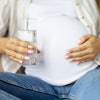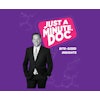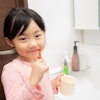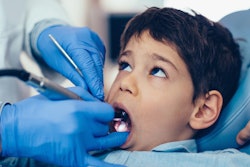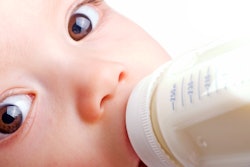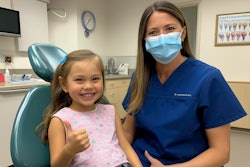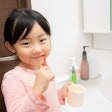Bottle-feeding toddlers to sleep may contribute to early childhood tooth decay, emphasizing the importance of phasing out this type of feeding when appropriate, according to a study recently published in the Australian and New Zealand Journal of Public Health.
Children who were bottle-fed at sleep time at age 3 had nearly twice as many teeth affected by tooth decay in early childhood, the authors wrote.
"Early interventions addressing bottle feeding could reduce the dual burden of ECC (early childhood caries)," wrote the authors, led by Heilok Cheng, a doctoral candidate at the University of Sydney (Aust N Z J Public Health, March 18, 2025, 100224).
In the study, mother-infant pairs were recruited during their first postnatal visit with child and family health nurses at 4 to 6 weeks of age, between October 2009 and February 2010. The primary exposure was bottle-feeding to sleep with non-water drinks at bedtime or nap time, including formula, expressed breast milk, cow's milk, juice, or other sugary drinks, they wrote.
Data were collected through interviews at 8 weeks, 4 months, 8 months, 1 year, 2 years, and 3 years of age. At age 3 to 4, children were invited for a dental assessment, with ECC defined as the presence of any decayed, missing due to caries, or filled surfaces (DMFS).
Dental examinations were conducted on 718 children. At 24 months, 30.3% were bottle-fed to sleep, decreasing to 21.7% at 36 months. Bottle-feeding to sleep at 24 months (prevalence ratio [PR] 1.32; 95% confidence interval [CI]: 1.06 to 1.63; DMFS 1.49, 95% CI: 1 to 2.23) and 36 months (PR 1.56; 95% CI: 1.26 to 1.93; DMFS 2.41, 95% CI: 1.57 to 3.71) was linked to a higher prevalence of ECC and caries experience, they wrote.
Furthermore, at 24 months, bottle-feeding to sleep showed a moderate association with increased caries experience (DMFS 1.48, 95% CI: 1 to 2.20), while at 36 months, the association was stronger (DMFS 1.88, 95% CI: 1.22 to 2.91).
The study, however, had limitations. There may have been potential bias in self-reported feeding data, where some mothers may report "never" bottle-feeding to sleep but still acknowledge giving cariogenic drinks at bedtime or nap time, the authors added.
"These findings contribute to the importance of avoiding bottle feeding to sleep at bed or nap times, and is consistent with the recommendations for age-appropriate cessation of bottles after 12 months age and transition to cup use," they concluded.

